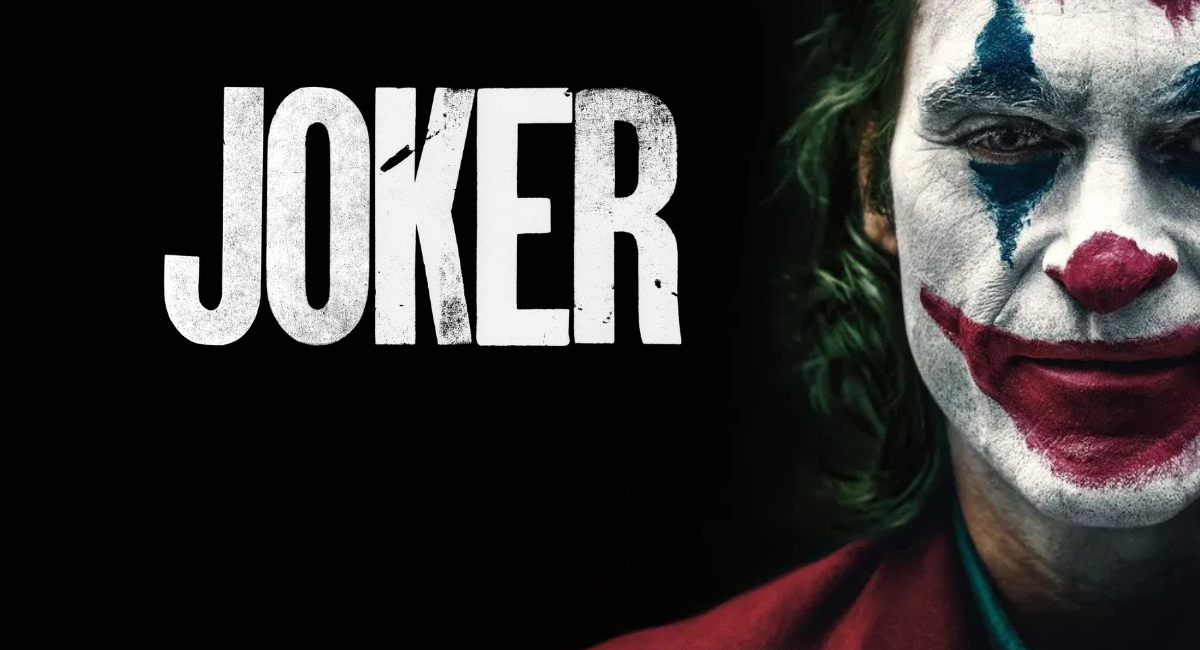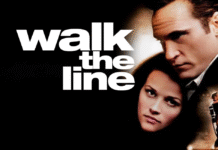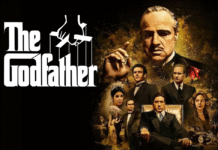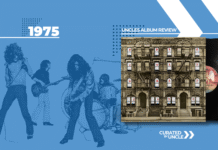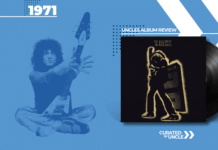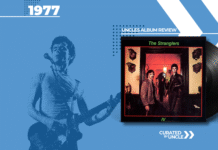Joker (2019): A Portrait of a Man, a Society and a Very Poorly Funded Mental Health System
Let’s get one thing out of the way: Joker is not a superhero movie. There are no flying men in capes, no glowing cubes and not even a mildly helpful raccoon. This is not Marvel. This is Gotham before Batman, before justice and well before therapy apps.
Directed by Todd Phillips, who up until this point was best known for giving us The Hangover, you know, the one where men lose a baby and brain cells in Vegas, Joker took a wildly unexpected turn into serious, award-winning, society-punching cinema.
And yes, it’s about a man dressing up like a clown and shooting people. But somehow, it’s also a searing indictment of modern life. So… yay?
Table of Contents
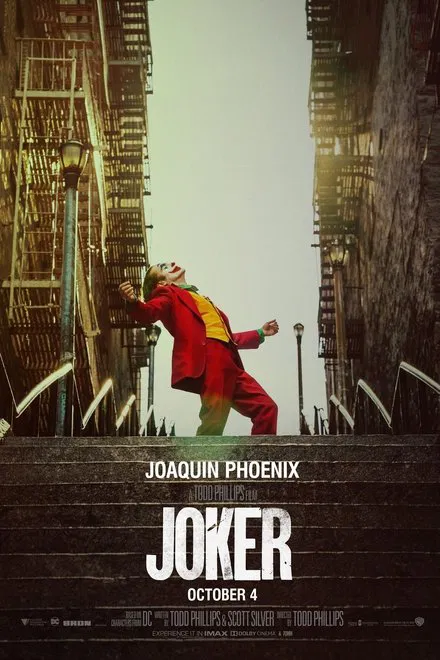
The Plot: The Origin of Sadness Wearing Face Paint
Joker tells the story of Arthur Fleck, a failed stand-up comic, part-time party clown and full-time mental health warning sign. He lives with his mother in a crumbling apartment straight out of a housing horror story and navigates a Gotham City that makes 1970s New York look like Disneyland.
Arthur is the cinematic embodiment of “It’s fine, I’m fine, everything’s fine” right before it absolutely isn’t. When society ignores him, abuses him and finally discards him like last week’s trash, Arthur doesn’t get help. He gets a gun and a taste for chaos.
The transformation into the Joker isn’t dramatic. It’s painfully believable. One humiliation at a time, like a to-do list of psychological collapse.
Joaquin Phoenix: Somebody Give This Man a Sandwich (and an Oscar)
Phoenix didn’t just act in this role. He disintegrated into it. He lost over 50 pounds, emotionally and physically contorting himself into a person who seems permanently at war with his own skeleton.
His laugh is uncomfortable. His dancing is tragic. His eyes? Hollow enough to legally qualify as haunted property. It’s a performance that drags you in and leaves you emotionally pickpocketed.
The Academy gave him an Oscar for this role. Fair. But they really should’ve offered trauma counselling to anyone who watched it sober.
Direction & Tone: Like Taxi Driver Got Kicked in the Teeth
If Taxi Driver and The King of Comedy had a child during a government shutdown, it would be Joker. Todd Phillips borrows heavily from Scorsese’s psychological descent playbook but paints it in cigarette ash, neon decay and unrelenting awkward silences.
There are no superheroes. No happy endings. Just dirt, delusion, and dancing on stairs while society burns.
The film’s tone is claustrophobic, relentless and soaked in anxiety. If you don’t feel slightly nauseous watching it, check your pulse, you might be part of the problem.
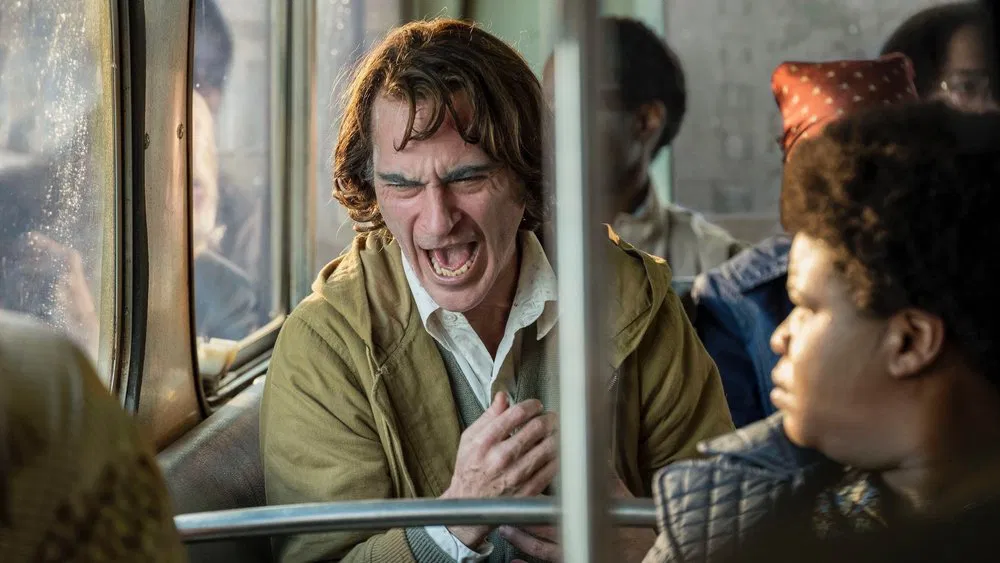
Themes: Mental Health, Class Divide and Punching Down
Joker is less about villainy and more about the systemic neglect that breeds it. Arthur is a product of a society that offers platitudes but no support. He gets medication, until the funding dries up. He asks for help, until the help says, “We’re cutting you off, good luck out there.”
It also takes a bat to wealth disparity, with the privileged literally looking down on the masses (sometimes while wearing clown masks and smashing windows). Gotham’s elite, like Thomas Wayne, speak in press conference platitudes while their city eats itself alive.
It’s less of a film and more of a flaming mirror held up to late-stage capitalism.
Controversy: Why So Serious (and Afraid)?
When Joker was released, moral panic ensued. Would it incite violence? Was it glorifying incels? Could it be weaponised by angry loners everywhere?
These are fair questions if you’ve never actually watched a film before. Because Joker doesn’t celebrate Arthur – it pities him. It’s not an origin story for a hero. It’s a warning. Like a cigarette packet label, but with more murder.
If you walked out of this thinking, “Yeah, this guy makes some good points,” maybe call a therapist. Immediately.
Cinematography & Score: Gotham Through a Dirty Window
Every frame of Joker looks like it smells like damp. Gotham isn’t just gloomy, it’s decaying, one overflowing rubbish bin at a time. Director of photography Lawrence Sher captures a city on life support, while Hildur Guðnadóttir’s cello-heavy score vibrates through your sternum like grief having a panic attack.
From the blood-stained bathrooms to the awkward stair dances, everything is designed to feel off—as if the world, much like Arthur, is just barely holding it together.
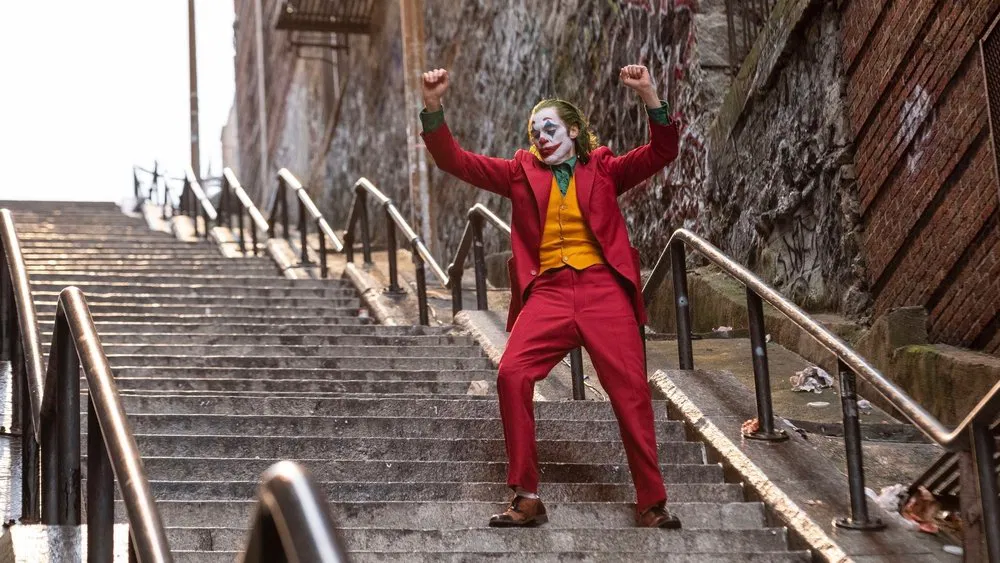
The Staircase: Dance Like Everyone’s Watching and You’re Totally Unhinged
Arthur’s now-infamous staircase dance scene set to Gary Glitter, a controversial choice that, let’s be honest, felt like a deliberate middle finger – is the moment the transformation is complete.
It’s also a scene so memeable it hurt. Ironically upbeat. Horrifyingly confident. It’s as if Arthur finally feels “seen”- right as he loses what little was left of his grip on reality.
You don’t know whether to cheer, scream, or uninstall your social media.
Legacy: Why Joker Broke the Box Office and the Internet
Joker grossed over $1 billion worldwide, making it the most successful R-rated film of all time. It also caused a small internet riot in every corner of film Twitter, from those screaming “masterpiece” to others muttering “dangerous propaganda” under their breath.
And perhaps that’s why it works: because it forces uncomfortable conversations. About mental health. About isolation. About the fact that maybe, just maybe, society does help create the monsters it fears most.
Also, the memes. So many memes.
Recommended If You Like:
- Being emotionally destabilised on a Tuesday
- Joaquin Phoenix in full method meltdown
- Nihilism, but make it cinema
- Films that feel like a slow-motion nervous breakdown
- Asking “what the hell is wrong with people?” out loud in a dark room
My Final Thoughts: Society, You Had One Job
Joker is not an easy watch. It’s not fun. It’s not even satisfying in the traditional sense. But it’s important. It dares to dig beneath the greasepaint and expose the rotten infrastructure underneath.
Is it glorifying violence? No. It’s asking what happens when compassion dies and we leave people to rot, then act shocked when they light a match.
It’s not a movie about a villain. It’s a movie about what happens when you ignore someone long enough and then act surprised when they start screaming.
And in 2025, that still feels disturbingly relevant.

If You Like Joker, I Recommend These Movies:
- Taxi Driver: A Love Letter to Red Flags and Late Night Rants
- Fight Club: The Original Bro-flavoured Mental Breakdown
- Nightcrawler: News, Psychopathy and The Capitalist Grindset

Joker
Arthur Fleck
Murray Franklin
Sophie Dumond
Penny Fleck
Thomas Wayne
Detective Burke
Detective Garrity
Randall



